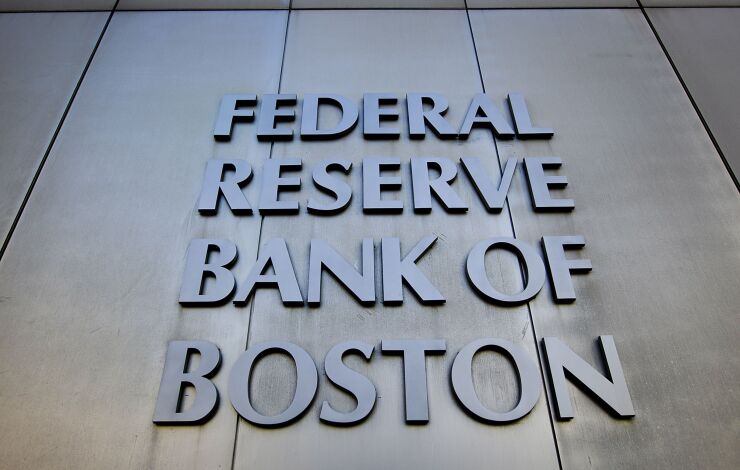Poorer and more marginalized demographic groups in the U.S. are significantly more likely to be unbanked, and one of the reasons they use cash is fear of high bank account and credit card fees.

To find out who is paying most of these fees, the Federal Reserve Banks of Atlanta, Boston and San Francisco produced new data in one of the largest consumer payments diary surveys conducted in recent years.
About 16% of consumers earning under $50,000 annually were likely to pay a bank overdraft fee, compared with 7% of consumers earning more than $100,000, FRB economists Oz Shy and Joanna Stavins concluded.
In addition, about 17% of Black consumers paid bank overdraft fees, versus 10% of white consumers, the paper said.
On the credit card side, 5.2% of all credit card customers paid a late fee in 2021. Nearly one in 10, or 9.4%, of low-income consumers had recently paid a late fee on a credit card, compared with 3.1% of high-income consumers.
About 11% of Black consumers paid a late fee on a credit card versus 4.4% of white consumers.
The authors based the paper on data gathered in October 2021 via the Diary of Consumer Payment Choice, where the Fed surveyed 3,969 U.S. respondents on their income, demographics and use of financial services. Unlike previous similar studies the Fed has been conducting since 2015 that queried fewer than 3,000 people, this version also included more detailed questions about how respondents use bank accounts and credit cards.
The authors said they set out to learn whether bank account and credit card account fees are regressive: Are lower-income consumers more likely to pay certain fees versus higher-income consumers? Do age, race and education play a role in who pays more fees?
The paper also aims to help assess the potential effectiveness of some proposed policies, including the
Bank account users were asked whether they paid any of six types of fees, including overdraft or low-balance fees. Credit card users also were asked about typical fees they paid, including for late payments and cash advances.
In general, lower-income consumers were significantly more likely to pay overdraft fees and Black consumers were significantly more likely to pay any bank account fee compared to other consumers with similar income and account-balance levels, the researchers wrote.
However, analyzing the data from the perspective of income alone, racial effects were less pronounced, they said.
Overall, the survey found that 95% of consumers had a banking relationship and 93% had a checking account. The share of consumers who were banked increased with age, income and education. White consumers were more likely to be banked, employed, own a home or be married.
According to the study, a white consumer had more than three times as much money in their checking account compared with a Black consumer — on average $6,323 versus $2,037.
Apart from income, race or other factors, consumers who avoided paying overdraft fees kept six times the balance of people who paid overdraft fees — $6,363 versus $1,110. Among all consumers who paid an overdraft fee, 78% kept less than $1,500 in their account.
About three-quarters of consumers surveyed had at least one credit card — 78% for whites and 57% for Blacks. About 40% of all credit card users carried a balance during the preceding month (45% carried an unpaid balance at any point in the last 12 months).
Card users with an annual income under $50,000 were more likely to revolve a credit card balance than those with higher incomes. Black consumers and unemployed consumers were more likely to revolve a balance than white consumers and employed consumers.
Even though paying bank account or credit card fees may not be desirable for consumers, it is potentially less costly to maintain an account and pay fees than to be unbanked, the authors concluded.
"Bank account fees are one of the main reasons why consumers do not have a bank account, and paying such fees affects consumers' attitudes toward banking," the authors concluded.
Crafting solutions to resolve disparities in who pays the most fees is not simple, said Eric Grover, a principal with the payments consulting firm Intrepid Ventures.
"Bank and card fees may look extraordinary to regulators, but digging into why these fees exist you may find it's the only way rank-and-file financial institutions — and even fintechs — can offer broad services to less-profitable consumers," Grover said. "Regulators and lawmakers may find that when you cap fees, you run the risk of reducing the range of services that are available to vulnerable consumers."






